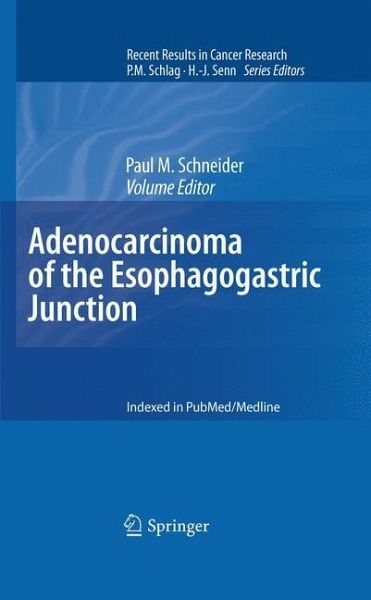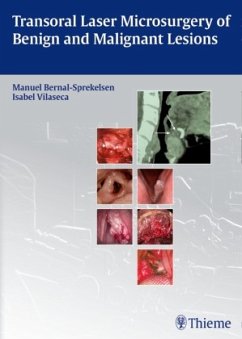
Adenocarcinoma of the Esophagogastric Junction

PAYBACK Punkte
57 °P sammeln!
Among malignant tumors, adenocarcinomas of the esophagogastric junction show the highest increase in incidence over the past three decades in Western industrialized countries. This special volume, with contributions from experts in the field, covers all aspects of the disease. Etiology, pathogenesis, classification, and clinical staging are discussed, and there is special emphasis on state of the art treatment techniques. The latter range from endoscopic mucosal resections or limited surgical resections for early cancers to multimodality treatment options for locally advanced tumors. Emerging ...
Among malignant tumors, adenocarcinomas of the esophagogastric junction show the highest increase in incidence over the past three decades in Western industrialized countries. This special volume, with contributions from experts in the field, covers all aspects of the disease. Etiology, pathogenesis, classification, and clinical staging are discussed, and there is special emphasis on state of the art treatment techniques. The latter range from endoscopic mucosal resections or limited surgical resections for early cancers to multimodality treatment options for locally advanced tumors. Emerging quality issues in surgical management are addressed. Detailed attention is also paid to other important recent developments, including molecular response prediction, early metabolic response evaluation by PET and PET-CT, the diagnosis of micrometastases, and the use of sentinel node technology. This volume will be of interest to all clinicians concerned with the diagnosis and management of this malignancy.














